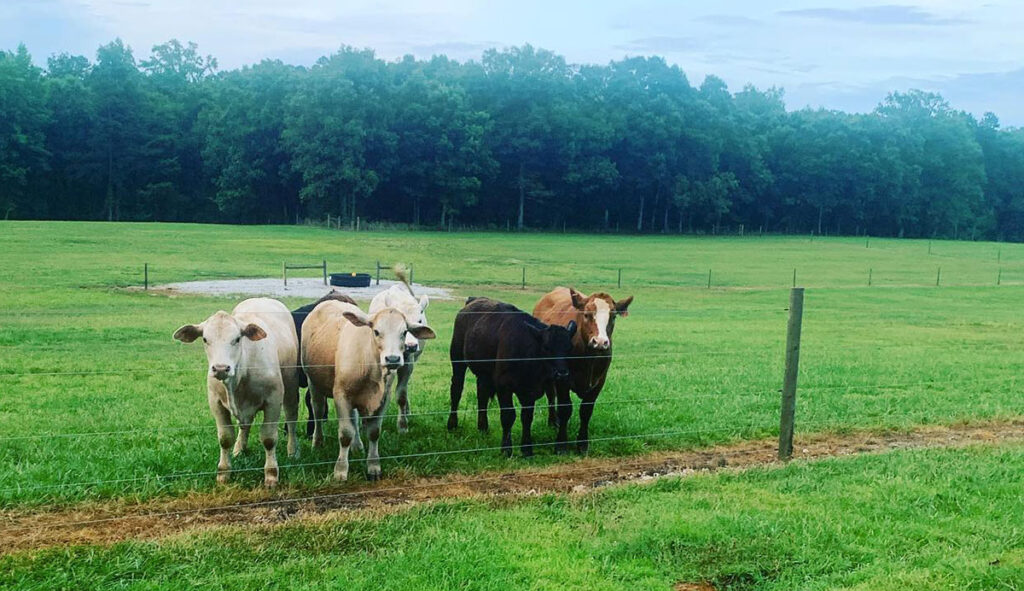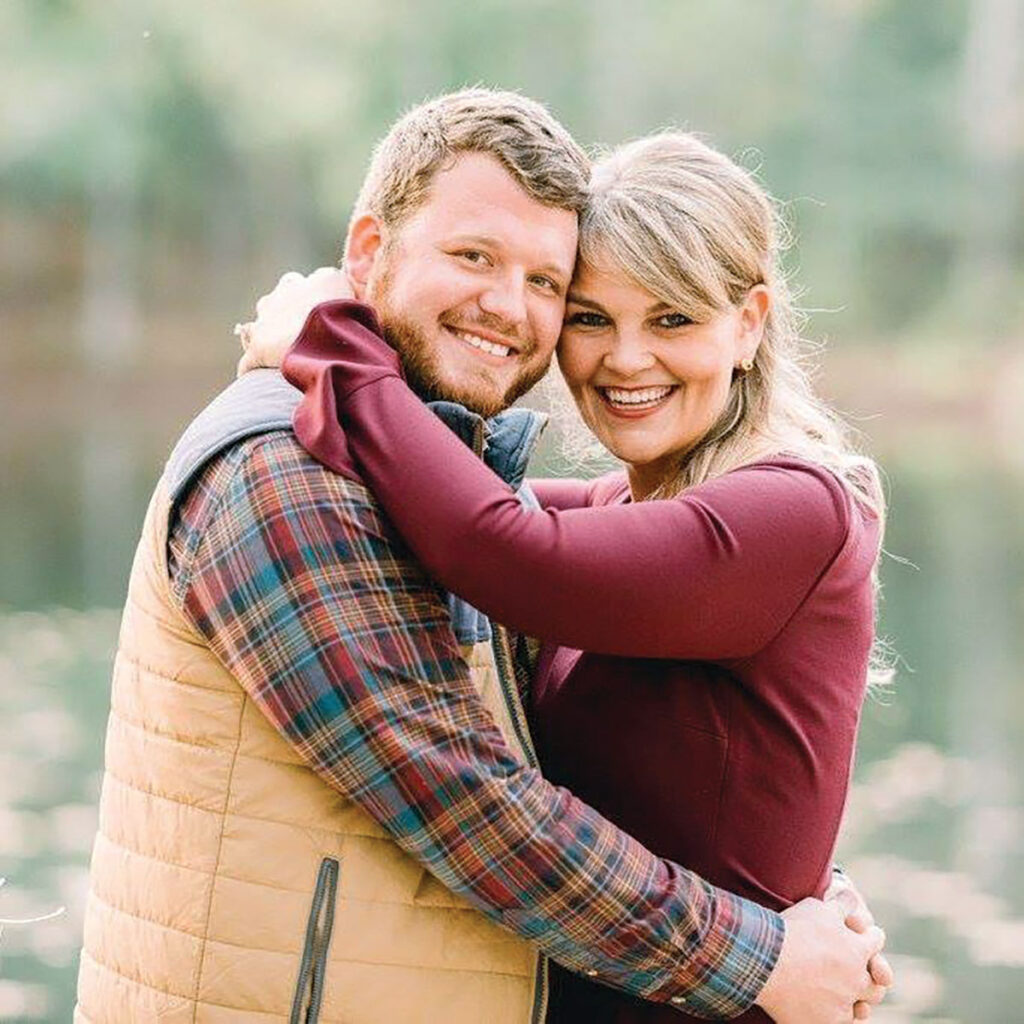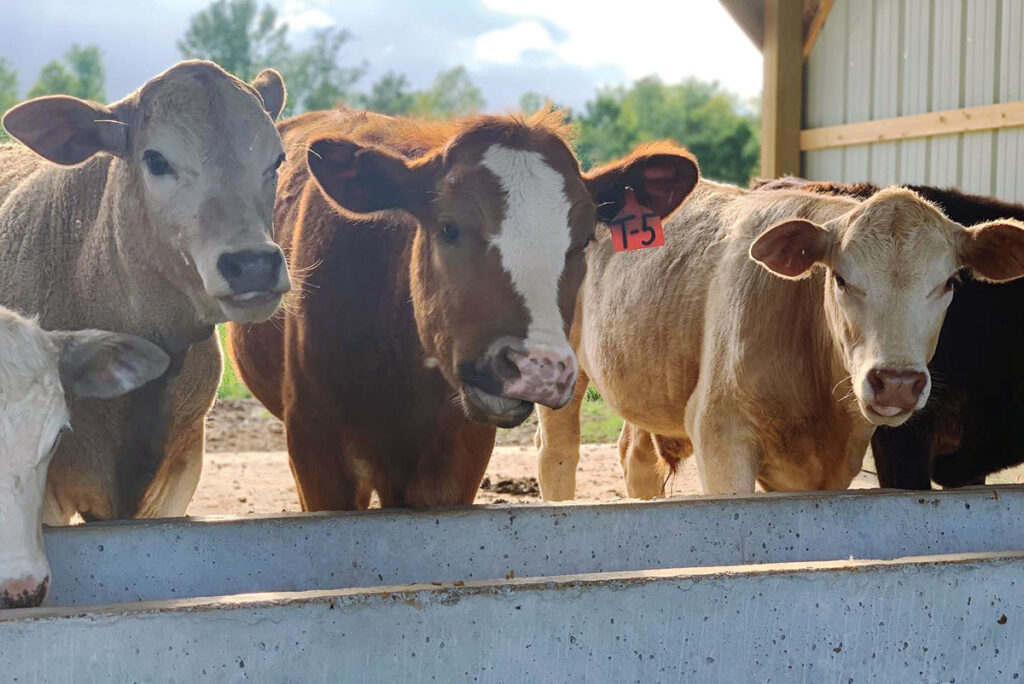
First-generation farmers Tyler and Laura Beaudreau worked to improve their land before getting cattle
ROLAND, ARK. – Farmers and ranchers must know and understand the capabilities and limitations of their land. That understanding is precisely what first-generation producers Tyler and Laura Beaudreau considered when they began their operation at Double B Ranch in Roland, Ark.
Tyler and Lisa were married in 2017, buying the first tract of land that would become their farm the same year.

“We bought it originally because my wife had to have somewhere for her horses,” Tyler explained. “In 2018, we decided we wanted to expand. We originally bought 25 acres and the house, then an additional 40 in 2018. It took from 2018, 2019 and 2020 to get the infrastructure to bring cattle in.”
The Beaudreaus worked with the Natural Resource Conservation Service to develop a four-paddock rotational grazing program with waters, a 5-strand high-tensile fencing system and a solar well pump. The system enables the herd to have a new pasture weekly.
“The land was mostly wooded, so we have had to come in and reclaim the property,” Tyler explained. “We’ve done a lot of work to it and have tried to do it right so we didn’t have to come back and do it again.”
In all, about 12 acres are currently part of the grazing system and support 20 head of steers and feeder heifers earmarked for the Double B Ranch’s beef operation, which is in its first year of operation. The couple sells individual cuts, utilizing a company called Barn2Door, and wholes, halves and quarters.
“We took a heifer in July to be processed, and we are already out of beef, so that was a huge success,” Tyler said. “We’re taking five in December. We pretty much have three that will be packaged up (as individual cuts), one that will be a whole, then one that will be for halves or quarters. The wholes, halves and quarters pretty much pay for the processing everything else.”
While the Beaudreaus are in the cattle business, they are not cow/calf producers. They have opted to purchase weaned and vaccinated calves from a nearby farmer for their beef program. Calves roam the paddock system for about nine months before being processed.
“We have a deal worked out where we get first pick before the calves go to auction,” Tyler explained. “He has more than 100 head, so we pick the best of the best.”
Because they do not have enough acreage to produce hay, Tyler said buying the calves and processing them before winter is the most cost-effective way to raise cattle.
“We don’t want to have to winter anything,” he said. “Dec. 11 is our last processing day in 2021, and then we will be out of cattle until the spring. Also, we aren’t comfortable with the birthing side of it. We’re both first-generation farmers, and this is our first time having cattle, so the last thing we need is a calf to get hung up and we not know what to do. For us, this is also the best way to keep from buying and storing a bunch of hay. We have a pretty good grass stand, but it is pretty much done by December. We might have to feed a round bale of hay or two, but it’s not going to be a ton of hay we will have to store.”
Calves come to the Double B weaned a minimum of 14 days, and are put into the rotational grazing system.
“We let our spring grasses come in pretty thick, and we make sure calves have a good mineral out. In the spring, the clover is heavy, so we make sure we have a mineral that keeps them from bloating. They are banned and vaccinated before they come, so we pretty much feed them and make sure they are healthy.”
Calves are offered a 14-percent creep feed, and corn is added to the feed about 60 days from harvest.
“They have a lot of grass too. The corn helps get them a little more fat and kind of tops him off,” Tyler said, adding that offering grass-finished beef was not an option because of the extended time required for a calve to gain weight. “Our land dictates how we do what we do. If I had 500 acres of green grass and all the time in the world, I would do both grain-finished and grass-finished beef.”
Due to the expense of clearing land, Tyler said they were unable to fertilize their pasture areas. Still, Tyler is adamant about maintaining the natural grasses on the farm, including clover, Bermuda and other species.
“The biggest thing we have done with our pasture is mow,” he said. “I love a good mowed field, and I don’t like to let things get grown-up and then brush hog once a year. Even before we had cattle, I mowed once a week. We have looked at overseeding some legumes, but we’re happy with what we’re doing right now. We’ve found just keeping the pastures clipped helps with grass growth.”
By clipping pastures, Tyler said they have also been able to nearly eradicate some nuisance weeds from their farm.

The Beaudreaus are planning to expand their cattle herd in the future.
“We are going to keep adding every year until I know the maximum of my land,” Tyler said.
In addition to the cattle operation, the couple also has laying hens.
“We just bought another 75 layers and built a new coop, so we will have pasture-raised eggs,” Tyler said, adding the operation consists of mostly brown egg layers, but there are some other breeds in the brooder.
“We don’t go just off of egg production,” Tyler said. “My wife loves pretty chickens, so we have Polish, Barred Rock, a lot of the Ameraucanas, and Whiting True Blues that have a really blue egg. We’ve found a lot of our customers like a variety of sizes, shapes and colors in their eggs. It’s different than going to the store, where everything is the same. Our packaging is a clear plastic, recyclable carton, and you can see your eggs.”
Their eggs are big sellers at the berry farm next door to their farm.
There are also plans to add Cornish cross broilers for meat birds. Tyler and Laura raised broilers for their own use last year and were pleased with the results, so they plan to offer the pastured poultry to customers next year.
Pasture-raised Berkshire pork is also on the “to-do list” for the Double B.
“We have a forested area, and our plan is to get five or six barrows,” Tyler said, adding that, like the cattle, they do not plan to breed pigs.
The Beaudreaus may be first-generation producers, but they have embraced the lifestyle.
“We have really enjoyed it,” Tyler said. “It’s brought my wife and me closer together. There’s so much going on and so much to do, but we can be together and work through any problems. We both have our strong suits in our careers (Tyler is a facilities manager at a Little Rock, Ark., country club and Laura is in pharmacy school with a graduation date of 2023), but neither one of us really know too much about this, so it’s been fun to grow together in our farm. My favorite thing when we get home is to get a cold beverage and go feed the animals.”







